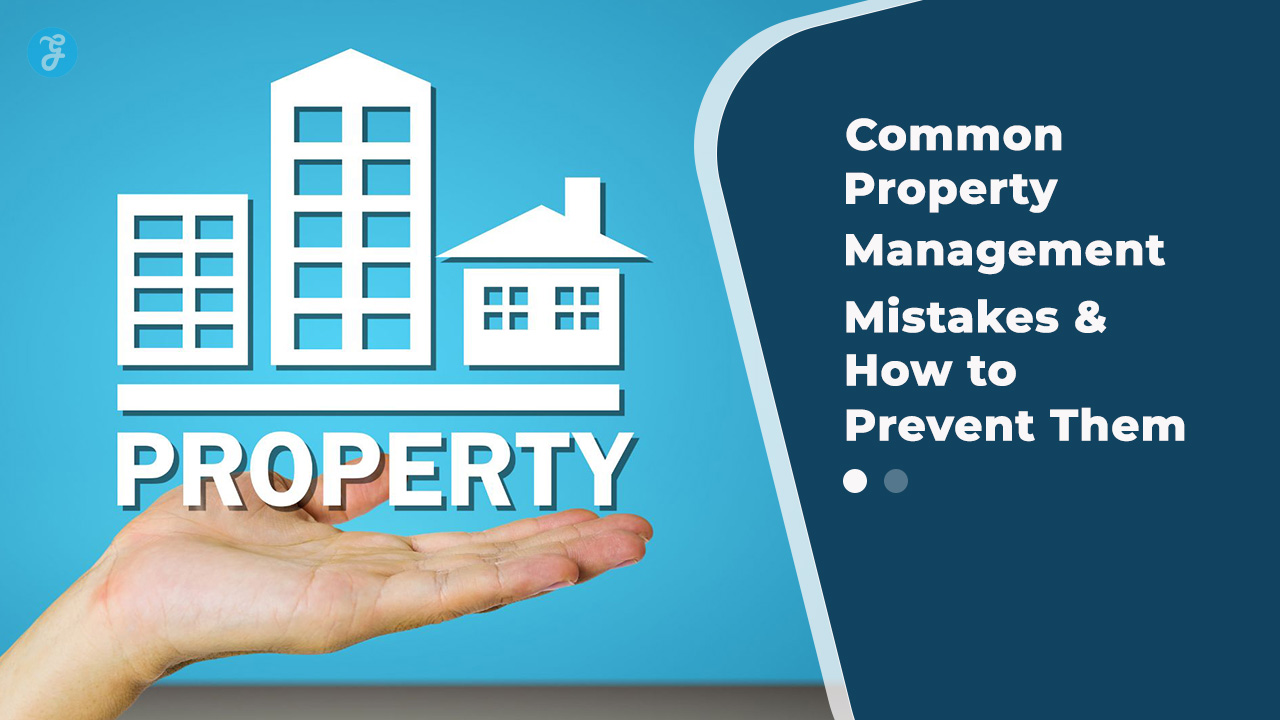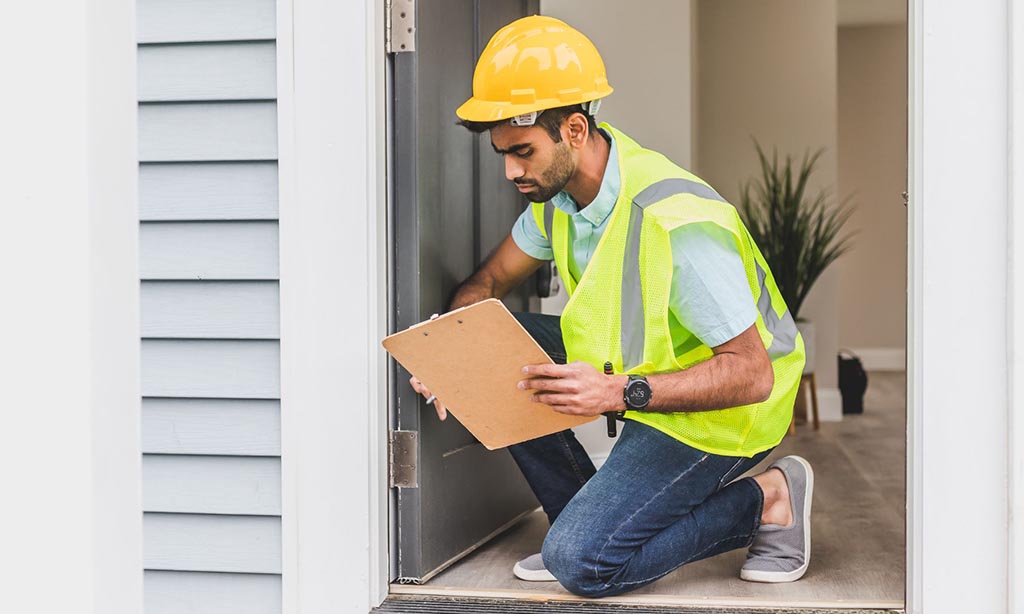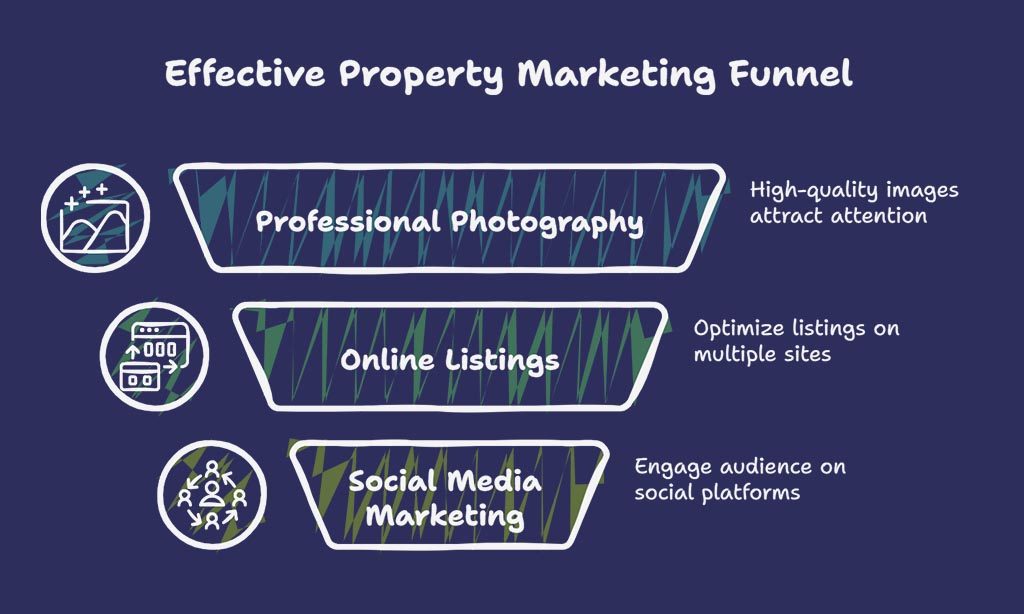Managing a property isn’t as simple as collecting rent and keeping tenants happy. There are many aspects of property management that require keen attention to detail, and missing the mark in any of these areas can lead to significant headaches.
Whether you’re a novice or an experienced property manager, understanding and avoiding common property management mistakes will ensure you can run your property smoothly, maintain high tenant satisfaction, and protect your investment.
In this article, we will explore 12 common property management mistakes that most property managers encounter and provide practical, actionable solutions to help prevent them. Let’s dive into each of these mistakes in detail, offering insights, tips, and real-world examples to give you a comprehensive understanding.
12 Common Property Management Mistakes
Let’s take a look at property management mistakes and how you can prevent them.
Mistake #1: Failing to Screen Tenants Properly
Tenant screening is one of the most vital aspects of property management. By not conducting a thorough screening process, you risk leasing your property to tenants who may cause trouble, from non-payment to property damage.
The Risks of Inadequate Tenant Screening
Tenant screening is the first step in protecting your property. Failing to screen tenants properly can lead to:
- Late or Non-Payment of Rent: Tenants who can’t afford rent or have a history of non-payment can lead to cash flow issues.
- Property Damage: Tenants who don’t take care of the property may cause long-term damage.
- Legal Issues: Renting to tenants who violate lease terms or local laws can result in expensive legal battles.
How to Implement a Comprehensive Screening Process
- Credit Check: A credit report shows the tenant’s financial responsibility. Look for consistent payments and low debt.
- Criminal Background Check: This helps ensure that you are not renting to someone with a criminal history that could jeopardize the safety of the property and other tenants.
- Eviction History: Tenants with past evictions may present a higher risk of future evictions.
- References: Contact previous landlords to understand the tenant’s behavior, reliability, and payment history.
Key Screening Criteria
- Income Verification: Ensure tenants earn at least three times the monthly rent amount. This can be verified through pay stubs or tax returns.
- Employment History: Stable, long-term employment is a good indicator of financial security.
- References: Contacting former landlords can help provide insights into the tenant’s behavior and responsibility.
By utilizing tenant screening software such as TenantVerify or RentPrep, you can streamline the process and make better-informed decisions.
Tenant Screening Criteria
| Screening Factor | What to Look For | Recommended Tool |
| Credit History | Good credit score, low debt | Experian, TransUnion |
| Criminal Background | No violent crimes, no felony convictions | Checkr, TruthFinder |
| Eviction History | No prior evictions | RentPrep, CoreLogic |
| Income Verification | 3x rent amount, stable job history | Paystub verification |
| Landlord References | Positive reviews, on-time payments | Phone interviews |
Mistake #2: Ignoring Regular Property Maintenance
Regular property maintenance is crucial to prevent issues from escalating. A property left unchecked can deteriorate quickly, leading to higher repair costs and unsatisfied tenants.
The Importance of Consistent Property Inspections
Routine property inspections help spot minor issues before they turn into major problems. They are an essential part of property management because they:
- Help identify repair needs early.
- Ensure compliance with safety standards.
- Build positive relationships with tenants by showing that you care about the property’s condition.
How to Create a Maintenance Schedule
A well-organized schedule will help you stay on top of maintenance tasks. Consider the following:
- Seasonal Inspections: Inspect heating and cooling systems before winter and summer to ensure they function properly.
- Routine Inspections: Inspect plumbing, roofing, and electrical systems at least once a year.
- Emergency Repairs: Address urgent issues like broken pipes or electrical problems as soon as they arise.
Preventive Maintenance Checklist
| Task | Frequency | Purpose |
| HVAC System Cleaning | Bi-Annually | Ensure heating and cooling efficiency |
| Roof Inspections | Annually | Prevent leaks and water damage |
| Plumbing Inspections | Annually | Detect leaks or clog risks |
| Pest Control | Quarterly | Prevent infestations and ensure tenant comfort |
| Gutter Cleaning | Bi-Annually | Prevent water damage and foundation issues |
A proactive approach to maintenance can save you money by catching issues early, improving tenant satisfaction, and preventing costly emergency repairs.
Mistake #3: Poor Communication with Tenants
Clear and consistent communication is essential for creating a positive tenant experience. Poor communication can lead to frustration, complaints, and even legal disputes.
How Communication Affects Tenant Satisfaction
Tenants who feel that their concerns are heard and addressed are more likely to renew their lease and respect the property. Poor communication, however, can lead to dissatisfaction, misunderstandings, and negative reviews.
Best Practices for Effective Tenant Communication
- Set Clear Expectations: Clearly outline your expectations regarding rent payments, property rules, and maintenance requests in the lease agreement.
- Be Responsive: Respond to tenant inquiries, complaints, and maintenance requests promptly. Delayed responses can increase frustration.
- Use Technology: Use apps or property management platforms (like Buildium or TenantCloud) to streamline communication.
Tools for Streamlining Communication
| Tool/Platform | Purpose | Benefits |
| Buildium | Property management software | Tenant communication, maintenance tracking, and payment processing |
| TenantCloud | Cloud-based property management tool | Offers messaging, document sharing, and maintenance requests |
| Cozy | Rent collection and communication platform | Simplifies rent payments, reminders, and lease tracking |
Effective Conflict Resolution
Sometimes, issues arise despite clear communication. A swift, respectful response can defuse tension:
- Listen: Let the tenant explain their concerns without interruption.
- Acknowledge: Show empathy and acknowledge the tenant’s feelings.
- Resolve: Take action to resolve the issue as quickly as possible, offering compensation if necessary.
Mistake #4: Inadequate Rent Collection Processes
An efficient rent collection system is fundamental to the success of property management. Failing to have a clear and consistent rent collection process can lead to cash flow problems and tenant disputes.
Common Rent Collection Pitfalls
- Lack of Clear Policies: If tenants aren’t clear on when rent is due or what the penalties are for late payments, confusion and delays are likely to occur.
- Manual Payment Systems: Relying on paper checks or in-person payments can be inefficient and error-prone.
- Inconsistent Enforcement of Late Fees: Failing to consistently enforce late fees may encourage late payments.
How to Set Up an Efficient Rent Collection System
- Automate Rent Payments: Set up automatic payments via property management software such as TenantCloud or Cozy to ensure timely payments.
- Clear Rent Due Dates: Include clear instructions in your lease agreements about when and how rent should be paid, including consequences for late payments.
- Send Rent Reminders: Automated reminders before the due date can help tenants avoid missing payments.
Managing Late Payments and Fees
- Late Fees: Enforce a clear late fee structure, such as a $50 late fee after 5 days.
- Grace Period: Provide a 3-5 day grace period before applying a late fee to allow flexibility.
- Payment Plans: If a tenant faces financial difficulty, consider offering a structured payment plan to prevent non-payment or eviction.
Mistake #5: Failing to Keep Accurate Financial Records
Proper financial management is key to the profitability of any property. Without accurate records, you risk missing tax deductions, making poor investment decisions, or even violating tax laws.
Why Accurate Financial Records Are Essential
Keeping detailed financial records is essential for:
- Tax Filing: You’ll need accurate records to prepare tax returns and take advantage of property-related tax deductions.
- Budgeting: Understanding your cash flow helps you plan for future expenses, repairs, and investments.
- Legal Protection: Having accurate financial records ensures that you comply with local regulations and protect yourself during audits or disputes.
Best Practices for Property Management Bookkeeping
- Track Income and Expenses: Use accounting software like QuickBooks or Xero to track rent payments, maintenance costs, and other expenses.
- Separate Personal and Business Finances: Always keep property-related finances separate from your personal finances to simplify record-keeping and avoid confusion.
- Regular Audits: Conduct audits quarterly to ensure accuracy and spot any discrepancies early.
Example of Property Management Expenses
| Expense Category | Example Items | Estimated Monthly Cost |
| Mortgage Payments | Monthly mortgage or loan repayment | $2,000 |
| Maintenance and Repairs | Plumbing, electrical work, HVAC repairs | $300 |
| Property Taxes | Annual property tax payment, split monthly | $150 |
| Insurance | Property insurance premiums | $100 |
| Utilities | Water, electricity, gas (if covered by landlord) | $400 |
By keeping detailed, accurate records, you not only protect your business but also gain valuable insights into your property’s financial health.
Mistake #6: Overlooking Legal Compliance
Legal compliance is non-negotiable in property management. Whether you’re renting residential or commercial properties, failing to adhere to landlord-tenant laws, building codes, or fair housing regulations can result in costly lawsuits, fines, and reputational damage.
Key Areas for Legal Compliance
- Fair Housing Laws: Discriminating against tenants based on race, gender, religion, disability, or familial status is illegal under the Fair Housing Act. Property managers must be aware of these laws to avoid discrimination lawsuits.
- Lease Agreements: Always use a legally sound lease agreement that includes clauses covering rent payments, property maintenance, and tenant rights. Update the lease to reflect any changes in the law.
- Health and Safety Codes: Local municipalities often have specific building codes, health, and safety regulations. Failing to comply with these codes can result in fines or even the closure of your rental property.
How to Ensure Legal Compliance
- Stay Updated on Local and State Laws: Laws related to property management can change, so it’s important to regularly review legal resources, attend seminars, or work with an attorney to ensure compliance.
- Consult with an Attorney: To avoid issues, consult with a property attorney to review your lease agreements, eviction processes, and dispute resolution protocols.
- Document Everything: Proper documentation helps protect you legally. Keep written records of tenant communications, repair requests, and inspections.
Examples of Legal Issues and How to Avoid Them
- Case Study: A property manager in New York failed to accommodate a tenant with a disability, violating the Fair Housing Act. The manager was fined $10,000 and required to take discrimination training. The lesson: Always provide reasonable accommodations and stay informed on the Fair Housing Act.
- Legal Resources: Use websites like Nolo or LegalZoom for downloadable forms, lease agreements, and to stay current on changes in the law.
Mistake #7: Neglecting Tenant Retention Strategies
While acquiring new tenants is important, retaining existing tenants is just as crucial. High tenant turnover is costly, and frequent vacancy periods can negatively impact cash flow.
The Cost of High Tenant Turnover
- Lost Rent: Empty units mean lost rent. Additionally, turnover involves cleaning, repairs, advertising, and lease signing costs.
- Tenant Acquisition Costs: The process of finding new tenants—advertising, screenings, and administrative work—can be expensive and time-consuming.
- Decreased Property Value: Frequent vacancies can give the impression that the property is undesirable, which could lower its market value.
How to Improve Tenant Retention
- Regular Communication: Build strong relationships with tenants by communicating regularly. Address concerns promptly, and keep tenants informed about any property updates or changes.
- Offer Incentives: Provide incentives for lease renewals, such as offering a rent discount for long-term tenants or making minor improvements to their living space.
- Create a Welcoming Environment: Ensuring your property is clean, safe, and well-maintained can encourage tenants to stay longer.
Tenant Retention Tactics
| Tactic | Benefit | Example |
| Prompt Response to Issues | Increases tenant satisfaction and trust | Respond to maintenance requests within 24 hours |
| Offer Renewal Discounts | Incentivizes tenants to stay longer | $50 rent reduction for a 12-month renewal |
| Organize Tenant Appreciation Events | Builds community and loyalty | Host an annual tenant BBQ or holiday event |
Real-World Example: Successful Tenant Retention
A property manager in Seattle introduced a small but impactful gesture—monthly tenant appreciation events. This simple practice, combined with personalized responses to tenants’ concerns, resulted in a 25% decrease in tenant turnover in just one year.
Mistake #8: Mismanaging Property Marketing
Marketing is not just about listing your property on rental websites. How you present your property can directly impact your occupancy rate. Failing to market your property correctly can result in long vacancy periods and missed rental income.
The Impact of Poor Property Marketing
- Long Vacancy Periods: If your property isn’t getting attention, you won’t attract the right tenants. This means longer vacancies and lost income.
- Underpricing or Overpricing: Misjudging the rental market can lead to overpriced or underpriced properties. Underpricing means lost revenue, while overpricing may result in longer vacancies.
- Ineffective Listings: Poor photos, vague descriptions, or insufficient details can make potential tenants overlook your property.
How to Market Your Property Effectively
- Professional Photos: Invest in professional photos to showcase your property in the best light. High-quality images attract more attention.
- Online Listings: Post your listings on multiple rental websites (e.g., Zillow, Apartments.com, Rent.com) and ensure they’re fully optimized with relevant keywords.
- Social Media Marketing: Leverage social media platforms like Instagram and Facebook to showcase your properties and attract a younger demographic.
Tips for Effective Marketing
| Marketing Strategy | Description | Platform |
| Professional Photography | High-quality images that highlight key features | Use services like Flyhomes or local photographers |
| Targeted Online Ads | Use Google Ads or Facebook ads to target potential tenants | Facebook, Instagram, Google Ads |
| Video Tours | Give potential tenants a detailed virtual tour of the property | YouTube, Instagram, Website |
Real-World Example: Boosting Occupancy Rates
A property manager in Los Angeles used 360-degree virtual tours and professional photos on listings and social media to boost interest in their properties. As a result, they reduced their vacancy rate from 12% to 4% within just six months.
Mistake #9: Inconsistent Rent Price Adjustments
Rent pricing is one of the most sensitive aspects of property management. If you aren’t adjusting rent in line with the market, you may either undercharge or overcharge, both of which can impact your bottom line.
Why Rent Pricing is Crucial
- Underpricing: Rent too low, and you’re leaving money on the table.
- Overpricing: Rent too high, and tenants may not be willing to pay, leading to vacancies.
- Market Fluctuations: The rental market fluctuates depending on location, demand, and economic conditions. Regularly reviewing market trends can help you stay competitive.
How to Properly Adjust Rent
- Research Market Rates: Use online rental platforms to understand the going rates for similar properties in your area.
- Adjust Periodically: Adjust rent annually or at the end of each lease term. This prevents sticker shock and ensures that your rents are aligned with market trends.
- Provide Value: If you need to raise rent, ensure you’re offering value through property upgrades, better amenities, or more services.
Tips for Rent Pricing Adjustment
| Strategy | Purpose | Example |
| Regular Market Research | Keep rent aligned with local market trends | Use tools like Zillow Rental Manager to track rental rates |
| Incremental Adjustments | Increase rent gradually, not drastically | Raise rent by 2-5% annually, depending on market conditions |
| Offer Lease Flexibility | Offer rent discounts or incentives to long-term tenants | Offer a $100 discount for tenants who sign a 2-year lease |
Mistake #10: Underestimating the Importance of Insurance
Property managers sometimes overlook the need for comprehensive insurance coverage. Failing to have adequate insurance can leave you vulnerable to significant financial losses in the event of accidents, damage, or lawsuits.
Why Insurance is Crucial
- Liability Protection: If someone is injured on the property, you could be held liable. Liability insurance can help cover medical costs and legal fees.
- Property Damage: Property insurance covers damage from fire, storms, vandalism, or natural disasters.
- Rent Loss Coverage: If your property becomes uninhabitable due to unforeseen circumstances, rent loss coverage can protect against lost income.
Types of Insurance Every Property Manager Needs
- Landlord Insurance: Covers property damage, liability, and loss of rent.
- Tenant Insurance: While tenants are responsible for their own belongings, encouraging them to get renter’s insurance protects both you and them in case of damage.
- Workers’ Compensation: If you have employees, such as maintenance staff, workers’ compensation is essential.
Mistake #11: Overlooking the Tenant Move-In/Move-Out Process
A smooth move-in and move-out process is essential for reducing disputes and ensuring the property’s condition is well maintained. Skipping these processes can result in damage, unclear expectations, and legal challenges.
Move-In Process Best Practices
- Detailed Move-In Inspections: Conduct a thorough inspection and document the property’s condition. Have tenants sign an inventory report that details the property’s state.
- Clear Instructions: Provide tenants with clear instructions on rent payment, maintenance requests, and emergency procedures.
Move-Out Process Best Practices
- Final Inspection: Do a final walk-through to assess any damage beyond normal wear and tear. Document everything.
- Security Deposit Handling: Be transparent about security deposit deductions and return the balance promptly to avoid disputes.
Mistake #12: Failing to Adapt to Technological Advancements
As technology continues to advance, property managers who don’t embrace new tools and systems may find themselves falling behind their competitors.
Benefits of Technology in Property Management
- Efficiency: Automation tools save time on rent collection, maintenance requests, and communication.
- Tenant Experience: Apps for tenants to pay rent, submit maintenance requests, or communicate can significantly improve satisfaction.
- Data Insights: Software tools can help track expenses, identify trends, and optimize the business side of property management.
Technology Tools for Property Managers
| Tool/Platform | Purpose | Benefits |
| AppFolio | Property management software | Tenant communication, lease tracking, and payment management |
| TenantCloud | Cloud-based property management tool | Online payment, maintenance requests, and marketing |
| Rentec Direct | Property management software for landlords | Rent collection, financial reports, and tenant management |
Wrap Up
Avoiding common property management mistakes requires continuous learning, attention to detail, and proactive management strategies. From screening tenants and communicating effectively to maintaining your property and keeping precise financial records, each element of property management contributes to your overall success.
By implementing these best practices and strategies, you can build stronger relationships with tenants, reduce costly mistakes, and protect the value of your investment. Stay organized, stay informed, and remember that the more prepared you are, the less likely you are to fall victim to the most common pitfalls in property management.
Take action today to implement these solutions, and you’ll be on your way to running a smoother, more successful property management operation.





































